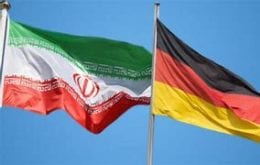Al-Monitor – Talks aimed at reviving the landmark nuclear agreement are set to resume in Qatar, Iranian and US officials said on Monday.
The resumption of indirect negotiations between the United States and Iran comes amid a push from the European Union’s foreign affairs chief, Josep Borell, who during a surprise visit to Tehran on Saturday announced that the talks would resume in the coming days.
The negotiating teams are headed to the Gulf country after a monthslong pause in talks aimed at bringing both Tehran and Washington back into compliance with the 2015 agreement, known formally as the Joint Comprehensive Plan of Action (JCPOA).
US Special Envoy for Iran Rob Malley will meet with Qatari Foreign Minister Sheikh Mohammed bin Abdulrahman Al Thani in Doha this week, a State Department spokesperson confirmed to Al-Monitor. Malley’s Iranian counterpart, Bagheri Kani, is expected to hold talks of his own with Qatar’s top diplomat.
A Western source familiar with the negotiations said they will begin on Tuesday. The source expressed cautious optimism over the fact that both the US and Iranian negotiating teams will be in the same city but said reaching a real breakthrough will require serious effort.
Iran refuses to negotiate directly with the United States, which abandoned the nuclear deal in 2018 and then reimposed harsh economic sanctions on the Islamic Republic. The first eight rounds of talks aimed at reviving the deal took place in Vienna, with European diplomats shuttling between the Iranian and American negotiators.
Qatar, which maintains ties with both the United States and Iran, has sought to help break the impasse. Over the past three months, the foreign ministers of both Qatar and Oman paid several unannounced visits to the Iranian capital in an effort to lay the groundwork for a revived nuclear deal.
According to an Arab diplomatic source who spoke to Al-Monitor on condition of anonymity, these visits saw the two diplomats carrying messages to and from Tehran over issues related to Iran’s frozen assets, the dual nationals imprisoned in the country, and Iranians held in both the United Kingdom and the United States.
By hosting the talks, Qatar has put itself in the center of the diplomatic action, building on its developing relations with Tehran and strategic ties with the United States.
“We are always open to host and ready to mediate or facilitate when needed,” a Qatari official told Al-Monitor, declining to comment on this week’s talks.
Qatar’s banking system could play a role in facilitating the transfer of funds to Iran if a nuclear agreement is reached and such a step is needed.
The parties to the 2015 nuclear deal were on the cusp of an agreement before the negotiations were suspended in mid-March, mainly over Iran’s demand that the United States remove the Islamic Revolutionary Guard Corps (IRGC) from its list of Foreign Terrorist Organizations (FTO).
The Trump administration imposed the terror designation in 2019 under its so-called maximum pressure campaign, marking the first time the United States had ever branded part of another country’s military as an FTO. The Biden administration has refused to lift the IRGC’s designation, which it considers an extraneous demand from Iran.
A State Department spokesperson told Al-Monitor that the administration is prepared to “immediately conclude and implement the deal we negotiated in Vienna for mutual return to full implementation of the JCPOA.”
“But for that, Iran needs to decide to drop their additional demands that go beyond the JCPOA,” the spokesperson said.
Iran seems to have signaled some flexibility on the IRGC designation.
Mohammad Marandi, an adviser to the Iranian nuclear negotiating team, told Al-Monitor last week that Tehran doesn’t view the IRGC’s delisting as a condition of its return to the deal, and that it was never a condition in the first place.
On Monday, Marandi said the outstanding issues were the scope of sanctions relief and assurances that Iran will benefit from a restored agreement.
“The US and EU should now be more serious and also keep in mind that after the war in Ukraine, Iran’s position is much stronger,” Marandi added.
The two sides remain far apart heading into this week’s indirect talks, said Ali Vaez of the International Crisis Group.
Inside Tehran, “Those who want the deal restored are trying to extract more concessions from the US to be able to sell the deal’s restoration to skeptics within the leadership,” Vaez said. “The problem is that the Biden administration is already at the end of its rope.”
It’s unclear whether the administration is willing to provide the sort of meaningful alternative sanctions relief that the Iranians would want in exchange for dropping the IRGC issue from their list of demands.
“We’re sort of at a mismatch between the two sides in the sense that the US might be willing to give another 5% to move beyond this issue of the IRGC, but the Iranians expect another 20%,” he said.
The indirect talks are set to resume weeks before Biden’s planned visit to Iran’s chief regional rivals, Saudi Arabia and Israel. Senior military officials from the two countries met in March to discuss coordination against Iran, The Wall Street Journal reported on Sunday.
Israeli Defense Minister Benny Gantz said Monday that Israel, which is not a signatory of the agreement, will work with the United States to shape any potential new deal.
Editors note: This article has been edited for clarity and to include updated reporting.
 Shabtabnews In this dark night, I have lost my way – Arise from a corner, oh you the star of guidance.
Shabtabnews In this dark night, I have lost my way – Arise from a corner, oh you the star of guidance.



